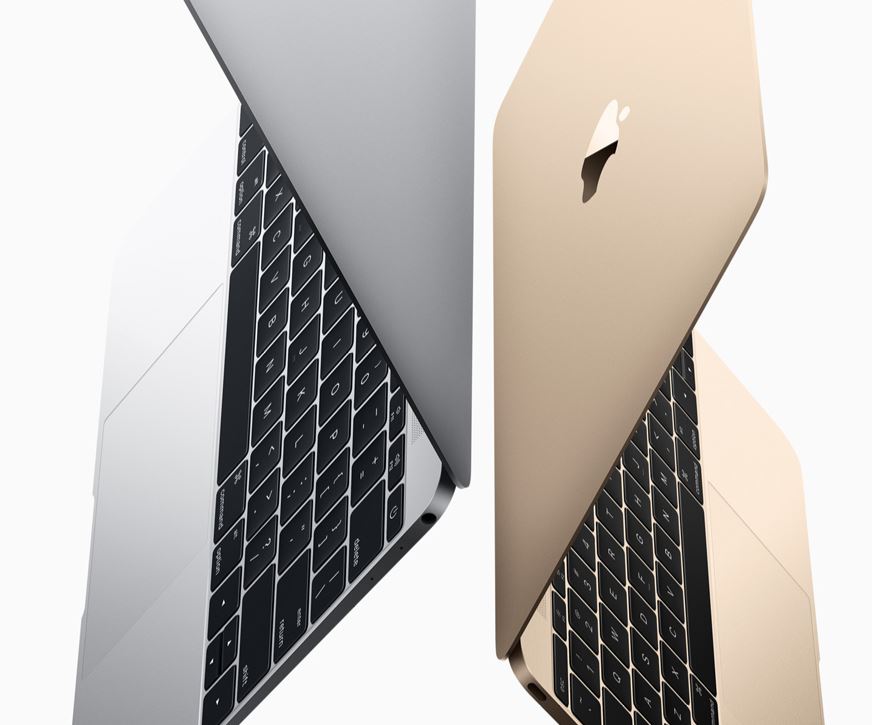One of the things Apple MacBooks are known for, is the beautiful aluminum finish that encases every MacBook Air, 12 inch MacBook, and MacBook Pro, as well as most iOS devices, like the iPhone and the iPad. An aluminum body is also what makes a MacBook stand out from other laptops, giving it a unique look and feel. Apple has adopted anodized aluminum as the go-to material for its laptops since 2008, when the original white and black polycarbonate macbook was officially retired.

What’s so special about aluminum
Aside from being lighter than most metals, aluminum is much more rigid when compared to most plastics, including the original MacBook’s polycarbonate unibody. While plastic is cheaper to manufacture (which is why most cheaper laptop bodies are made of plastic), and doesn’t dent, the problem with plastic is that it’s heavier, and a plastic body needs to be far thicker than its aluminum equivalent, to reduce the chance of it to crack and fall apart. This also explains why laptops with a plastic body tend to be heavier than MacBooks or other laptops encased in aluminum.
Heat conduction is another factor that makes Aluminum a better choice than plastic. Aluminum is a great heat conductor, therefore, not only MacBooks are considerably lighter and thinner than other laptops, they are able to keep the temperature of all internal components down, for cooler and quieter fan operations.
One of the most important reasons for Apple to use aluminum bodies is that it minimizes the chances for MacBooks to wear out, due to heat expansion.
The problem with most other laptops is that over a period of time, the plastic, or metals other than aluminum, tend to expand when it’s too hot, and to contract when the temperature cools down. When using a laptop in environments where there is a considerable thermal excursion, which is the difference in temperature between day and night, the materials inside, as well as those enveloping the device, will expand and contract as the temperature shifts from hot to cold.
This constant motion causes the structural build of the laptop to give in, and eventually cause screws, hinges and other components that hold the laptop together, to become loose, or break.
Due to its low coefficient of thermal expansion, a MacBook’s aluminum body doesn’t expand or shrink according to temperature, which means that MacBooks are likely to have a longer lifetime than other devices.
If aluminum is so great, why isn’t every laptop maker using it?
Casting aluminum is a more expensive and complex process than plastic. Also, aluminum allows for sleek and elaborate finishes that, while more expensive to render, couldn’t possibly be done on plastic surfaces.
By this token, it’s easier to deduce that if all laptop bodies were made of aluminum, laptops would be much more expensive, and less attainable for consumers.
Plastic, depending on the grade, can be lighter than aluminum, however, the thinner the plastic, the stronger the chance for the plastic to crack or fall apart due to heat and other environmental factors.
What about Magnesium Alloys?
More manufacturers have also considered varied types of magnesium alloy. Laptop bodies made of magnesium alloys are not as strong or sturdy as aluminum bodies, but they are considerably stronger than plastic. Magnesium alloys are also easier to cast, with a similar injection molding process as plastic.
While magnesium alloys are not as heat conductive, and also tend to degrade wireless signal, magnesium alloy is very cheap to come by, in fact 1 cubic mile of seawater contains as much as 12 billion pounds of magnesium.
Fun fact: military-grade MacBook unibodies could be possible, however...
Aluminum is overall a rather expensive, but better material to use in the manufacture of MacBook unibodies, however, as some with a more advanced understanding of chemistry and sheet metal machining have pointed out in the past, adding as little as 2% Vanadium to aluminum could result in formidably resilient, and possibly scratch-free MacBooks, with a much higher price tag, as Vanadium is a rare metal, rather difficult to obtain for mass production.